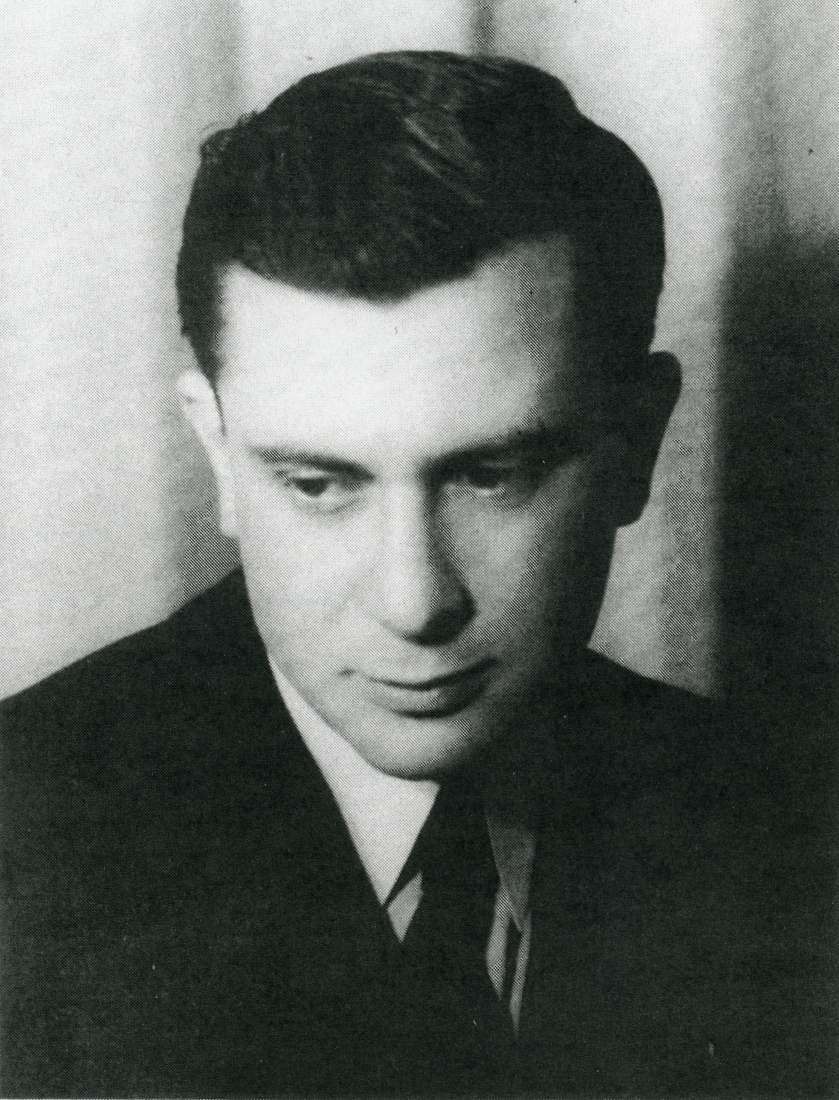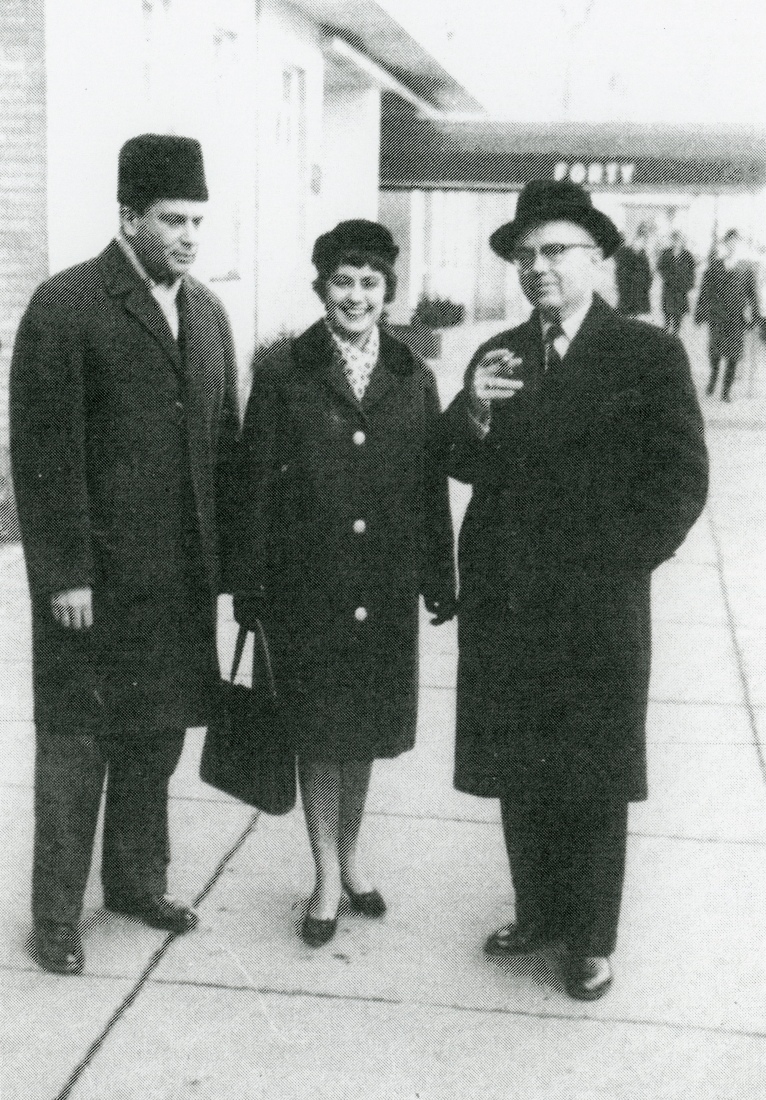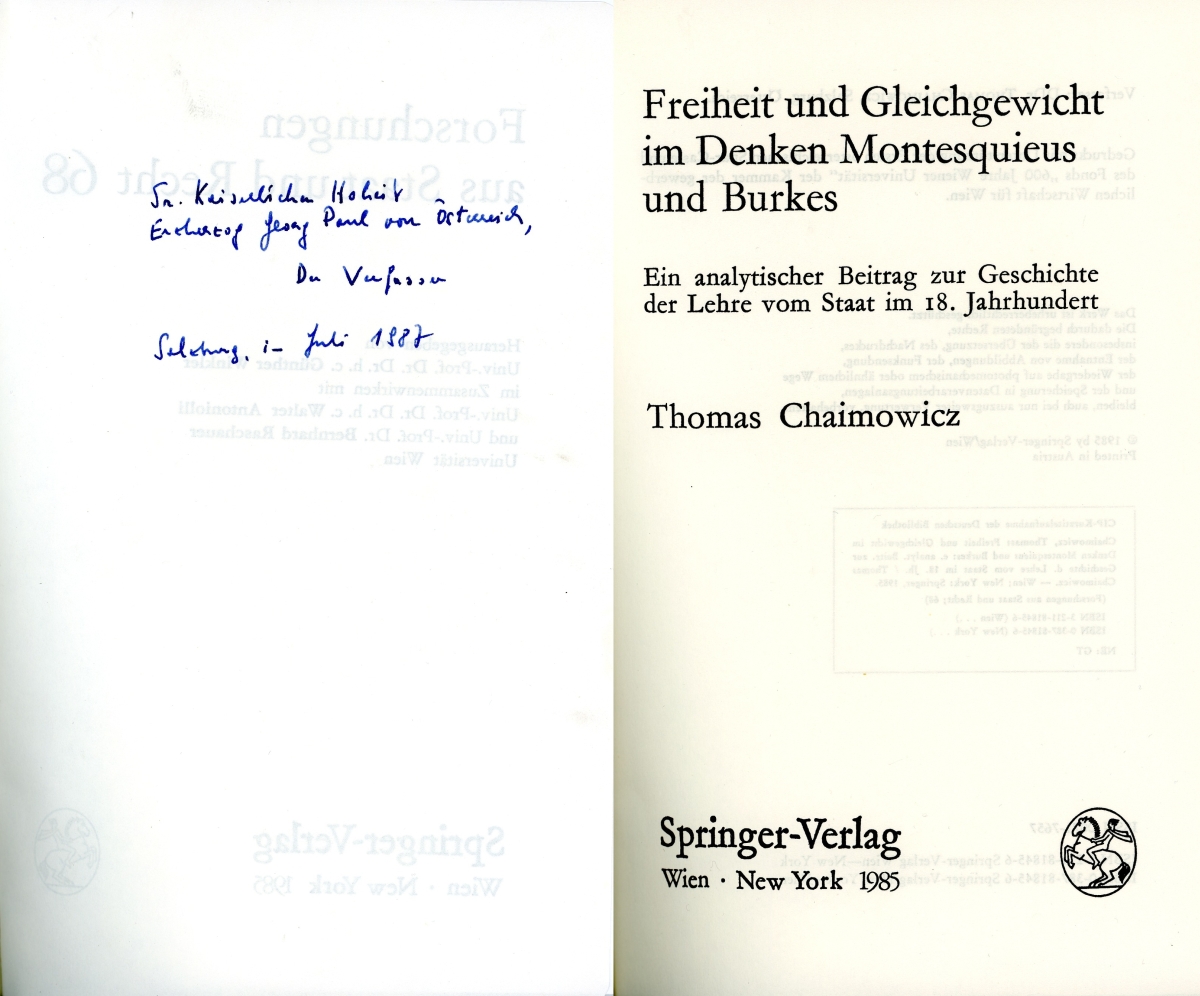The Austrian philosopher, almost unknown in our country, is an inescapable figure in European conservative thought. He was born in Vienna in a Jewish family of textile merchants. At the end of February 1939, he emigrated with his relatives to South America through Prague and Amsterdam. As a student at the Escuela Normal Superior in Bogota, he focused on social and economic science and Latin language. He completed his graduate degree in the United States as a scholarship student at Southern College, Birmingham, Alabama. He received his doctorate in literature and philosophy from the Jesuit-run University of Colombia in 1949.
After returning to his homeland, he studied classical philology and history at the Universities of Vienna and Innsbruck, obtaining a doctorate in philosophy in the latter in 1953. Afterwards, he began working as a lecturer at the University of Salzburg. His two decades of teaching— after an extended stint as a consultant for an American bank—was crowned by his appointment as Professor of Roman Law in 1986.
Thomas Chaimowicz (Bogotá, 1949)
His name appears in the material in the Habsburg Otto Foundation’s collection from 1958 in the Graz monarchist publication Die Krone, which supported the former heir to the throne. The topics of his short essays were drawn from classic political philosophical themes: power, the (legal) state, freedom, tradition, history, modernity and revolution—often on the same page as the articles on foreign policy written by Otto, hiding behind the pseudonym Diplomaticus.
Die Krone_1959 március 1.
Their voluminous exchange of letters evidences their friendship. Our Foundation maintains a corpus of nearly 1800 pages of correspondence between 1958 and 2000, which testify to their intense intellectual relationship (they sometimes mailed each other multiple letters in one day!). Otto von Habsburg and Thomas Chaimowicz shared similar views on the workings of world politics, the history and future of Western civilisation, and within, in particular, Europe. Their mutual trust is reflected in the philosopher’s involvement for several years in the education of Otto’s children.[1]
The Edmund Burke Society was founded in Salzburg in 1960 at the initiative of Chaimowicz. The organisation aimed to research the writings of the British politician known as the “father of conservatism” and to promote his ideals. Between 1960 and 1969, he edited the Society’s journal, the Österreichische Akademische Blätter, published in Vienna, which was edited by prominent European and overseas figures such as Wilhelm Böhm, Friedrich Engel-Janosi, Friedrich A. von Hayek, Willy Lorenz, Ludwig von Mises and Peter Stanlis. He and Russell Kirk became close friends. In addition to the above, in the 1970s, Chaimowicz was a frequent contributor to the Zeitbühne, a journal linked to Otto by a thousand ties.
The Chaimowicz couple in the company of Russell Kirk (New York, 1964)
The main work, published in 1985, Freiheit und Gleichgewicht im Denken Montesquieu und Burke. Ein analytischer Beitrag zur Geschichte der Lehre vom Staat im 18. Jahrhundert[2] is based on the premise that knowledge of the intellectual accomplishments of the past—in our case, of antiquity—is essential to understanding the present. Chaimowicz explores the influence of the ideas of the ancient authorities in the works of Montesquieu and Burke, with a particular focus on the relation of balance and freedom. Without balance, he argues, the freedom of the human community cannot exist—or at least is impaired—and can only be guaranteed and promoted by established traditions. Burke took this idea further when he spoke out against the abstract notions of the French Revolution, which threatened tradition and, thus, balance. Chaimowicz traces the source of Montesquieu’s ideas to Tacitus and Pliny the Younger. The concept of power-sharing and mixed government was discussed by the French author (also) in his smaller-scale work, Considerations on the Causes of the Greatness of the Romans and their Decline, which was analysed in detail in Chaimowicz’s book. Only a step away from Montesquieu is Burke, who incorporated the views of his French aristocratic contemporary into his argumentation on the risks of the revolution. Kirk wrote the foreword to the volume’s English edition.[3]
The Austrian thinker summarised his oeuvre in a Salzburg publication shortly before he passed away in 2002.[4] His scholarly career, his role in shaping continental conservatism in the second half of the 20th century—not least his relationship with Otto von Habsburg and the formal and informal networks he established—offers a wealth of intriguing insights for future research.
Thomas Chaimowitz’s writings in the journals
Die Krone (1953–1967),
the Österreichische Akademische Blätter (1960–1969),
and the Zeitbühne (1972–1979).
(The letter to Otto von Habsburg shown in the opening image is labelled HOAL I-2-b-Thomas Chaimowicz, 12 November 1961; the photographs of the philosopher are from the appendix to the autobiographical essay cited in the footnote.)
[1] Kirk, Russel: The Sword of Imagination. Memoirs of a Half-Century Literary Conflict. William B. Eerdmans Publishing Co., Grand Rapids, MI, 1995, 208.
[2] Springer Verlag, Wien–New York, 1985 (Forschungen aus Staat und Recht, 68.)
[3] Antiquity as the Source of Modernity. Freedom and Balance in the Thought of Montesquieu and Burke. Transaction, Somerset, NJ, 2008.
[4] Chaimowicz, Thomas: Heimkehr aus dem Exil. Salzburg. Geschichte & Politik, 2000, 4, 253–345.





